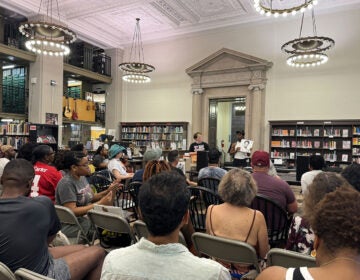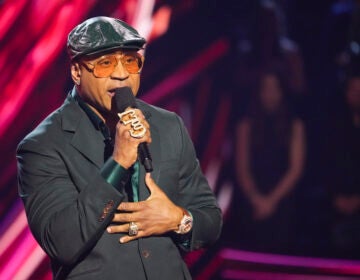Black Civil War major celebrated
A little-known civil rights activist from the 19th century is being honored in Philadelphia this month.
Martin Delany was the highest ranking African-American officer in the Civil War–a major. He was also an early black nationalist who argued for an African-American exodus.
Saturday, May 6 is the 200th anniversary of his birth.
Delany was born a rebel. The son of an enslaved man and a free woman, his mother argued in a Virginia court for her child’s freedom. As an adult he founded a black newspaper in Pittsburgh with Frederick Douglass–The North Star–and tried to integrate by entering Harvard Medical School.
While still a freshman, Delany was kicked out of Harvard for being black.
“Experiences like that led to his disillusionment,” said Robert Levine, author of “Martin Delany, Frederick Douglass, and the Politics of Representative Identity.”
“Around that time he breaks with Douglass. Douglass keeps talking about integration, and at that point Delany starts talking about immigration. I can understand how Delany would feel alienated by that experience at Harvard,” said Levine.
Until May 12, a series of 20 events, lectures, and panel discussions about Delany are lined up in Philadelphia, featuring Levine as well as Temple professor Molefi Asante, educator and former radical activist Bill Ayers, former neo-Nazi recruiter Frank Meeink, poet Sonia Sanchez, and journalist Clarence Page, among others.
The series, organized by Larry Robin of Moonstone Art Center, is part of his ongoing examination of great American troublemakers.
“All my heroes fall in the same line: Tom Paine, John Brown, Martin Delany,” said Robin. “They are outspoken and aggressive in their pushing for freedom and equality for everyone. That doesn’t always fit with making things go along.”
Robin believes Delany’s radicalism made Douglass’s more moderate views more palatable to Americans by comparison. Levine disagrees.
“During the 1850s, he [Douglass] has a number of speeches in which he talks about the importance of killing slave catchers,” said Levine. “We tend to think of Douglass as nonviolent, but he said slavery is war against black people and we should respond in kind.”
Some of the 20 events this month will put the legacy of Martin Delany in the context of racism in modern America, particularly the shooting death of Trayvon Martin in Florida.
A full schedule of events can be found here.
WHYY is your source for fact-based, in-depth journalism and information. As a nonprofit organization, we rely on financial support from readers like you. Please give today.




